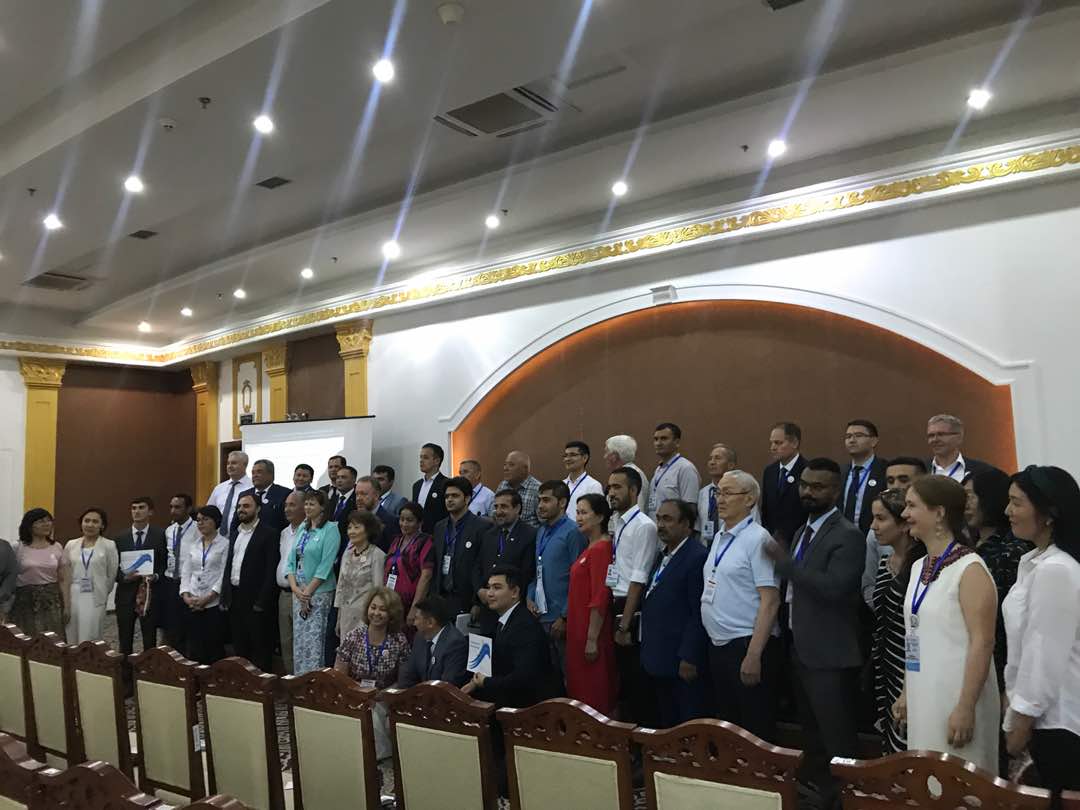
On 20-22 June 2018 an International High-Level Conference on the International Decade for Action «Water for Sustainable Development, 2018-2028, was held in Dushanbe. The event took place with involving a wide range of stakeholders, communities and civil society in the process of discussing the ways of achieving SDG 6 and water-related goals, awareness-raising on the Water Decade, accumulating ideas and best practices.
At the opening of the conference, the President of the Republic of Tajikistan, Mr Emomali Rahmon, delivered a welcoming speech: “Effective, fair and mutually beneficial water cooperation can become a catalyst for the development of countries connected by common water basins”.
The main objectives of the conference were to discuss the ways on how the Member States, relevant UN bodies, the specialized agencies, the regional commissions and other organizations of the UN system, as well as other relevant partners, including the private sector can contribute to the Decade in order to support the implementation of the 2030 Agenda for Sustainable Development. Discussion on the importance of specific means of implementation, including monitoring, financing, capacity development, access to technology and partnership with the private sector and civil society.
The conference program included plenary sessions, a number of thematic and interactive sessions, an exhibition, as well as a pre-conference and side-events. The pre-conference event “Water and Science for Sustainable Future” was conducted on 19th June, 2018 in the National Library by Regional Environmental Centre for Central Asia (CAREC), German-Kazakh University, Academy of Sciences of Tajikistan in cooperation with the United Nations Educational, Scientific and Cultural Organization (UNESCO) and International Water Management Institute (IWMI).
“Water and science” brought together 200 leaders around the world to advance partnership across the academia and scientific community. Over forty external experts and thought leaders joined the conference, including scientists, innovators, behavioral change experts and the heads of research institutions, to make research more transparent, collaborative and inclusive — opening new possibilities for science in water management. A wide range of questions such as enabling open access to data, research integrity, knowledge exchange, life-long learning, innovative tools for science, education, and others were discussed to guarantee benefits for science and society development. Expand cooperation and networking among scientists, policymakers and practitioners, as well for the strengthening of water research capacities more generally were indicated as one of the fundamental prerequisites of successful development of water science.
In order to be effective, knowledge systems that support decisions about water-resource management and development must link research- and experience-based knowledge to practices across a broad range of challenges. Some initiatives are well advanced in their design while others are at an inception stage, resulting in some sharper, shorter-term high-impact initiatives to other longer-term activities that bring together the contribution of various academia around the world and add up to achieve impact at scale. They are academia network impact initiatives that are delivered in powerful coalitions.
Follow-up actions of the pre-conference event would be strengthening regional networking in water science in following directions in the frames of the Water Decade 2018-2028:
-
Capacity building
-
Developing IWRM courses/curricula
-
Scientific research
-
Internationalization
-
Contribution to society development
-
Supporting the young generation
Cross-cutting issue and message of the sessions was the unified call to increase cooperation and networking among scientists, policymakers, and practitioners, as well as a strengthening of water science research capacity more generally in the regional level.
